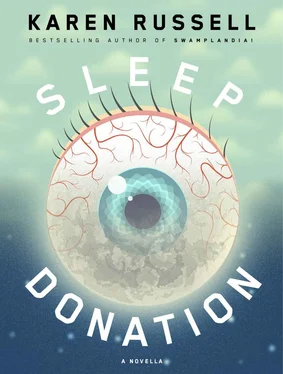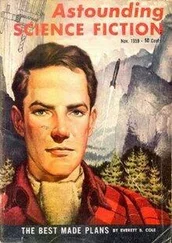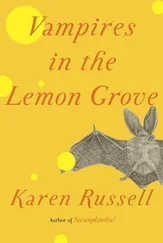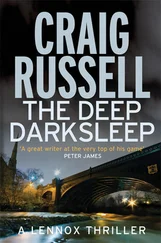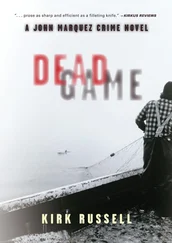At the reception window, I clear my throat.
“I think my sleep might be unusable this month, miss. I think there is something wrong with it.”
To which an icy voice replies, “Have a seat. We’ll be the judge of that.”
And I wonder: How many of the donors seated around me are secretly hoping for a similar outcome? To be exposed as broken, corrupted —to have our impurities discovered, under some investigator’s microscope, so that we can be exempted from ever having to give again? “Opting out” —Jim’s grim euphemism seems to apply here, too. What a relief, I think, to never again worry that you might be the one poisoning the nation’s sleep supply. Is anybody else having this fantasy with me? I gaze around the lobby, where six of us are waiting to learn if our dreams are healthy. One robust lady in a Minnie Mouse sweatshirt is scribbling furiously on her clipboard; she leans over to ask me, “Honey, how do you spell ‘piranha’?”
It takes some time to input my nightmare onto the form. Then I have to wait even longer for them to run the database scan. At the end of the hall, in custard-colored booths the size of library carrels, potential donors are going over their nightmares with staff members. I catch fragments:
“… a bunny-like twitchy face…”
“. . and the barber had electric-green hair…”
“Okay!” says an administrator to her donor brightly. “You’re good to go here, Donald!”
This is really it, I think. You are about to be banned from donation. Greedily, I start to hope for this. It’s so sly, the way that fears and hopes and dreams and nightmares can belly-flip into one another. The longer I sit in the hard chair, the more I want to be dismissed. Fondly I recall excused absences and doctors’ notes, those pink tickets to hours of solitude. Chicken pox: one p.m. and the green cheesecloth curtains drawn, the relief of seeing no one, doing nothing, itching my sores in secret, breaking in my monster skin alone. Exempt me, exempt me. For reasons of public safety, for the greater good, tell me I can go home now and sleep for myself only.
“No,” says the attending physician, “nothing here to disqualify you.”
She gives me a wide, patient smile, as if to suggest that she deals with hypochondriacs like me hourly, people who believe that their nightmares must be uniquely wretched, worse than anybody else’s, who fall for the body’s shaky aggrandizements of its plans and pains.
I’m incredulous: “You’re sure? You want to check the database again?”
It’s not pure, she says, my sleep; but it’s good enough, and the need is urgent.
“You’re still eligible to give, Mrs. Edgewater.”
So I do.
Summer greens the trees on 330 °Cedar Ridge Parkway, and I continue to donate. For every hour Baby A gives, I give my hour. But I have the queasy feeling every day now, like there’s nothing I can do that’s not a betrayal of Dori, or of somebody’s dead or breathing, conscious or sleeping, much-loved body.
Breaking news: Donor Y has been discovered by the authorities. He flew into SFO from Oahu and was apprehended by a customs agent. His image is splashed everywhere. In his passport photo, Donor Y looks so ordinary: he’s got a crew cut, a square jawline, brown eyes. All the obvious symmetries. Acne scars swirl over his cheeks like just-audible music. It’s the kind of face that can be forgotten instantly, or easily digested into any crowd. From his bland expression, you would never assume this person could gestate and host the most virile, lethal nightmare in the world’s history. His name has still not been released.
According to preliminary reports, this man claims he had no idea that he was infected with a nightmare at the time of his donation. He is pleading innocent to the charges that he deliberately sabotaged our nation’s sleep supply. He agrees to a polygraph test and insists that he has never had the nightmare himself. He’s been sleeping soundly, apparently, for months. So Donor Y may turn out to be exactly what I feared the most: a good soul. Another human capsule, as clueless as the rest of us about his mind’s contents.
“Please help me,” I say when she answers the door. “Is Felix home?”
“Trish!” she mouths silently. Pantomiming, which means the baby is sleeping. “Oh dear, what’s wrong? Don’t worry.”
She hugs me on the front porch, and I hug her back, for a length of time that would feel unnatural with anybody but Justine Harkonnen. I try to record, to preserve in my skeleton, in my muscle memory, exactly how this feels. I figure there’s a real chance that thirty minutes from now I’ll be back on the lawn. Ousted from the Harkonnens’ lives for good, or even, it’s occurred to me, in the back of a police car —didn’t we steal their child’s sleep for profit? Felix must be home —the turquoise and brown car is baking in the sun. Strays weave around its tires like material shadows. There is a universe where I never tell the Harkonnens what I know about Jim. Or how I tried to use my dead sister, like tongs, to get something supple and alive out of them. I rest my head on Justine’s shoulder; instinctively, her hand flies up to pat my back. A driver in a passing car might think we are dancing in place. Through the doorway, I can see Mr. Harkonnen rocking Baby A, who is sleeping for herself this afternoon. Only her head pokes out of the sling, which makes Abigail look like the crinkled face in the moon. Deep inside me, I feel Dori stirring, her dead eyes opening to peer out through mine. Dori, in life, was honest “to a fault,” as they say. She’s dead, I mostly believe that, but we all pray, don’t we? To ourselves, if not to some provident Eye in the clouds.
In the doorframe, Mrs. Harkonnen is smiling, shining, with that innocence that we of the Slumber Corps love and abhor in her. With those wide-sky eyes, all blue, and a faith that precedes knowledge, Mrs. Harkonnen ushers me into her home. She says in a whisper, so as not to wake her baby daughter, “Come in, Trish. Whatever’s wrong, we’ll get to the bottom of it. I’m sure we can figure this out.”
The Whistle — Blower’s Hotline
The good news, or the mixed news, it might be fairer to say, is that I will not be performing this information-transfusion for the first time.
Last night, I called the hotline. Actually, I called the hotline about a hundred times. I couldn’t speak, and I couldn’t speak, I lost track of how many times I dropped the call, and then the seventieth or the eleven hundredth time that I dialed this hotline, for no reason I was able to discern, I heard myself begin.
After the phone clicked down, I woke up to what I’d done.
Maybe I will take that leave of absence now, after all .
I slumped, cored and cold, the way I used to feel after Drives. I sat watching the gray phone where it levitated on the wall, but no human from the Corps called me back; I wonder who picks up these messages.
All that dial tone I ingested must have come roaring out of me. To get the whole thing across properly, with all its nuances, I had to call back several times, resuming where I’d left off. When I finished, the scraped white moon was out. Near the end of my transmission, I heard myself, insanely, thanking the chittering machine for recording so much tape, and I felt a quakey relief, thinking that at last I was rid of it, that events would now rush to meet us, but at least I’d been honest, or as honest as I could be, starting with my first association with the Harkonnens. I leaned my head against the wall, listening to the droning silence. I exhausted myself with speculations about whether I’d set the wrong or the right outcome in motion. Unsurprisingly, last night I couldn’t sleep. I wondered what, if anything, would happen as a result of the phone call —if even now some dream or nightmare was massing into our future, gathering like weather, becoming real. But I also thought, with the sly old happiness, No matter what tomorrow brings, you can be sure of at least one thing, Edgewater: tonight you’ve given Dori’s story to a stranger.
Читать дальше
